Top 15 Literature Review Generators for Academics
Discover the top 15 AI literature review generators to create comprehensive reviews on your research topic.
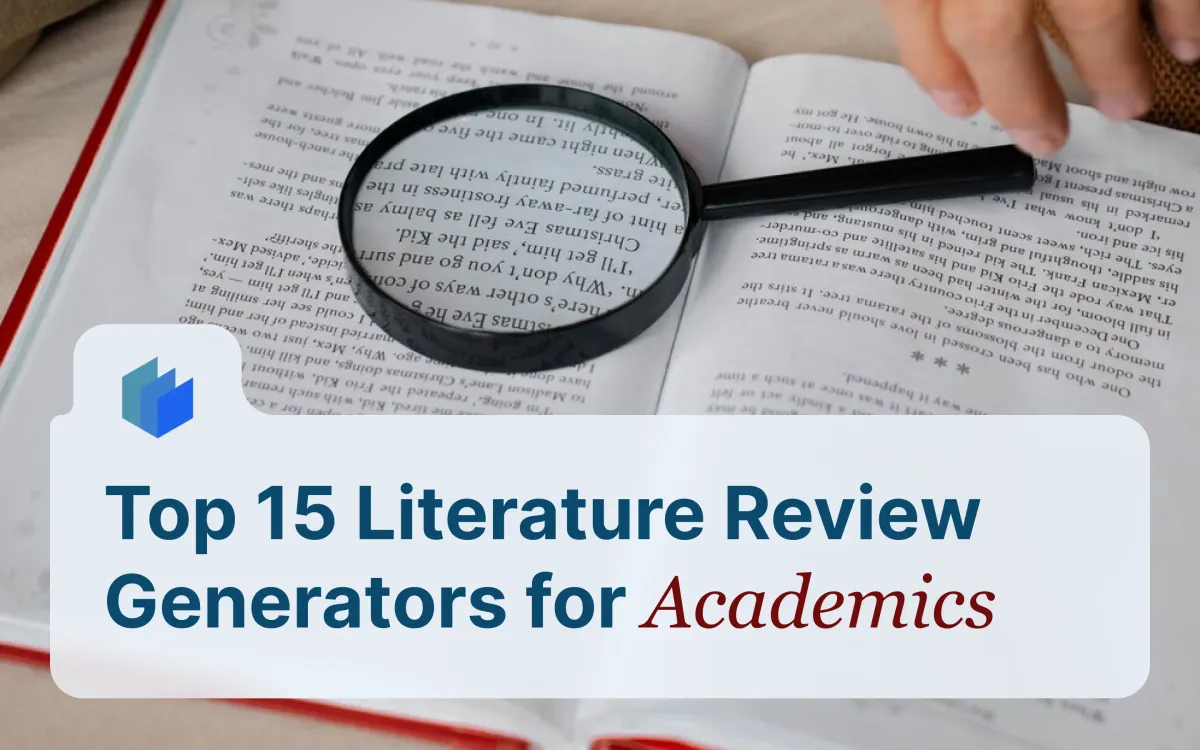
Have you ever wondered why literature reviews are so important in academic research?
Literature reviews help researchers understand what has already been studied and identify gaps in the current knowledge. They provide a solid foundation for new research by summarizing and analyzing existing studies.
With the rise of technology, AI-powered tools have become a game-changer in creating literature reviews. These tools can quickly sift through vast amounts of information, making the process faster and more efficient. They help researchers save time and ensure they don't miss any crucial studies.
In this article, we'll explore the top 15 literature review generators for academics. These tools are designed to make your research process smoother and more effective.
Let's dive in and see which tools can best help you with your literature reviews.
Definition of a Literature Review Generators
A literature review generator is an AI-powered tool that helps researchers create literature reviews. A literature review is a summary and analysis of existing research on a specific topic. It's an essential part of academic writing, as it provides a background for new research and helps to identify gaps in current knowledge.
A literature review generator automates this process. Instead of manually searching through countless articles, books, and papers, these tools can quickly scan and summarize relevant sources. They use advanced algorithms to find the most important and relevant information, making it easier for researchers to compile a comprehensive literature review.
Key features of literature review generators include:
- Search and Retrieval: They can search databases and retrieve relevant studies and articles.
- Summarization: They summarize the main points and findings of the retrieved sources.
- Organization: They help organize the information in a coherent and logical structure.
- Citation Management: They can generate citations and bibliographies in various formats.
Pros of Using a Literature Review Generators
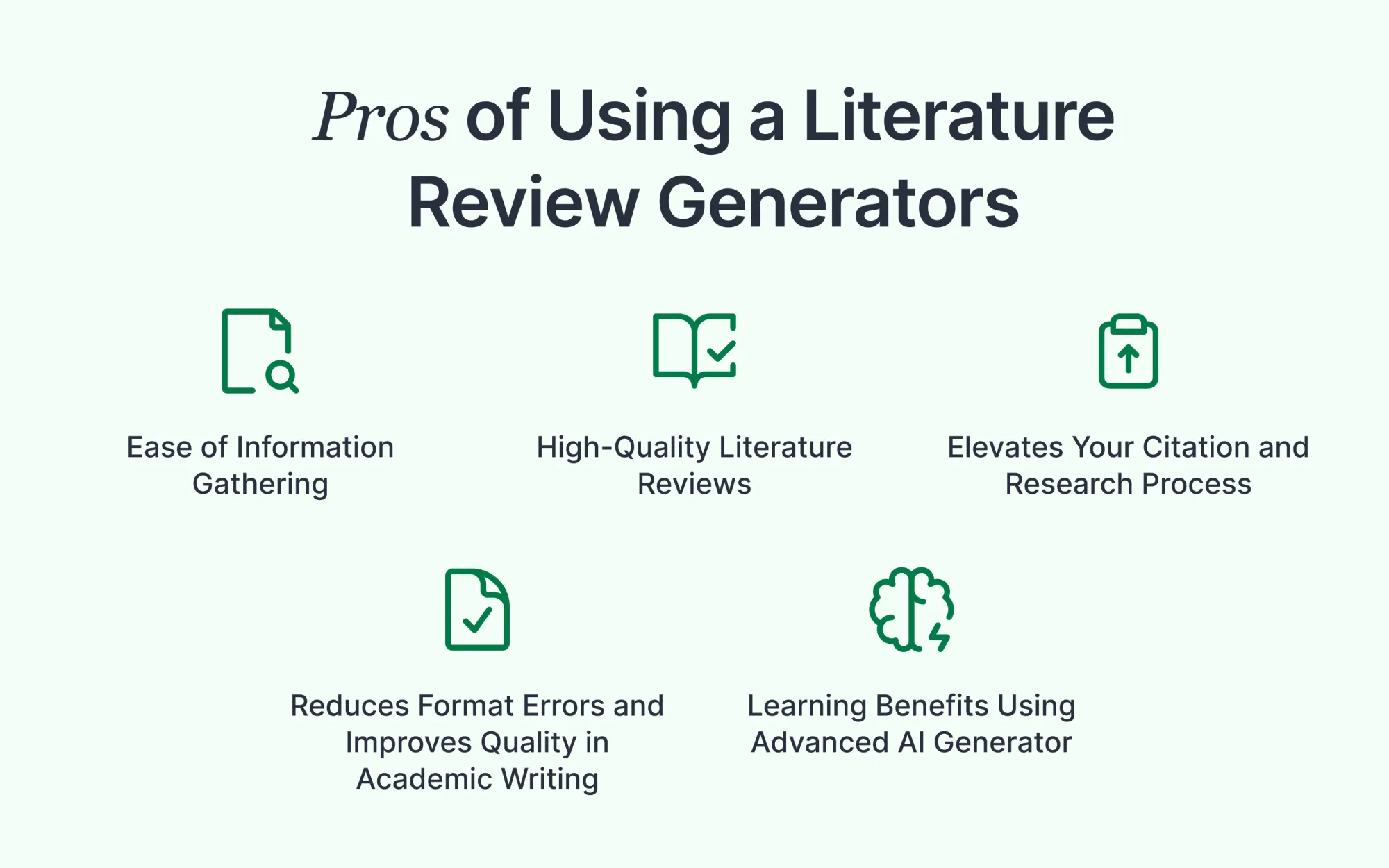
1. Ease of Information Gathering
Doing a thorough study means reading a lot and researching diligently, which can take hours. Literature review generators make this easier by automatically gathering relevant articles, journals, and other publications in seconds. This saves a lot of time and takes away the tedious task of going through countless resources.
2. High-Quality Literature Reviews
Organizing your review in a logical and clear way can be tough. These smart tools help by creating well-structured reviews. Literature review generators ensure that your citations and references are consistently formatted. This not only saves time but also maintains the professional standard required for academic writing. They identify and highlight the most important points from the gathered literature, helping you to focus on the most significant findings and theories related to your topic.
3. Elevates Your Citation and Research Process
A literature review generator is designed to enhance your research and citation process in several ways. These AI literature review generators are specifically created to find the most relevant studies for your research topic. Instead of manually searching through countless databases and journals, a literature review generator can quickly and accurately locate the most pertinent scholarly articles.
4. Reduces Format Errors and Improves Quality in Academic Writing
Humans are prone to making mistakes, especially when dealing with large amounts of data. This is particularly true in academic writing, where attention to detail is crucial. Literature review generators help reduce these errors significantly. This AI tool provides accurate data comprehensive review with a right research question, and relevant literature, and automates the process of creating ensuring that the information you include in your review is correct and well-organized.
5. Learning Benefits Using Advanced AI Generator
Using a literature review generator is not just a quick fix for students. When students write a literature review, it also helps them learn. These structured literature review tools show how professional literature reviews should be structured, guiding users in crafting their own structured review with proper citations and academic literature.
Top 15 Literature Review Generators
1. v0 Report
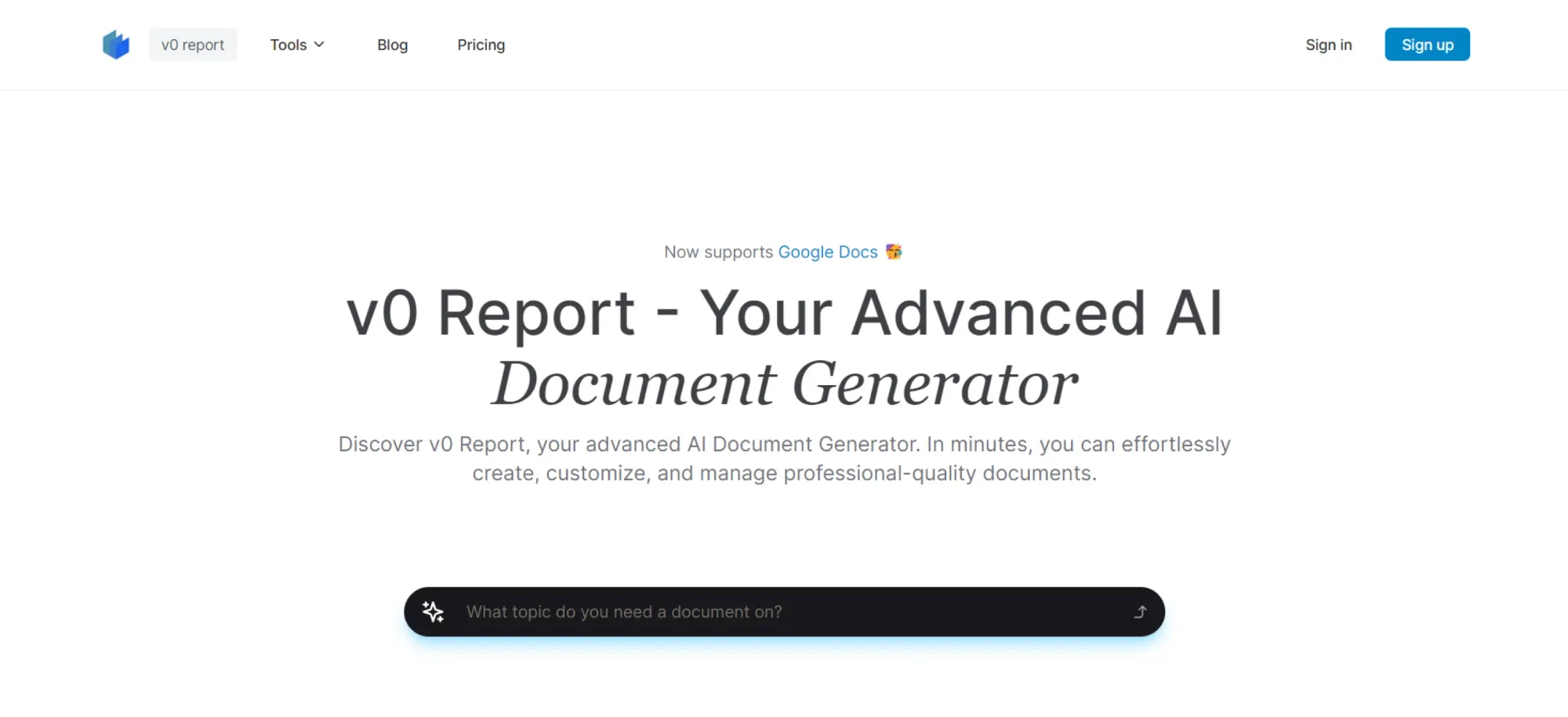
v0 Report offers an advanced AI-powered tool specifically designed for creating literature reviews. It simplifies the process by automatically generating summaries of research articles and organizing them into coherent literature reviews.
Pros:
- AI-driven, making it fast and efficient.
- User-friendly interface.
- Provides high-quality summaries.
- Integrates with other research tools.
Cons:
- Requires a subscription for full features.
- May need occasional manual adjustments.
2. Zotero
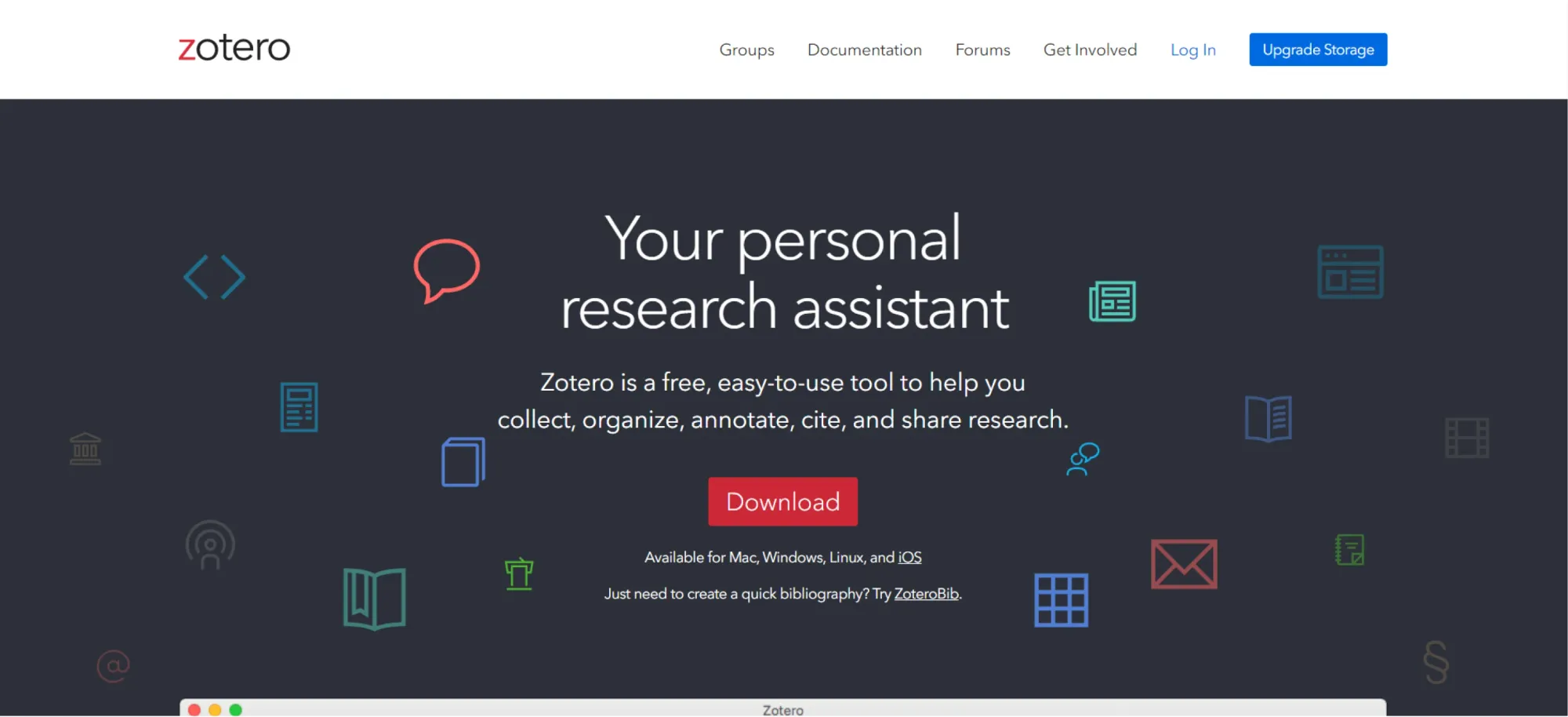
Zotero is a free, open-source tool that helps you collect, organize, cite, and share research. It's especially useful for managing references and generating literature reviews.
Pros:
- Free to use.
- Supports a wide range of citation styles.
- Easy integration with web browsers.
- Collaboration features.
Cons:
- Limited cloud storage.
- Learning curve for new users.
3. Mendeley
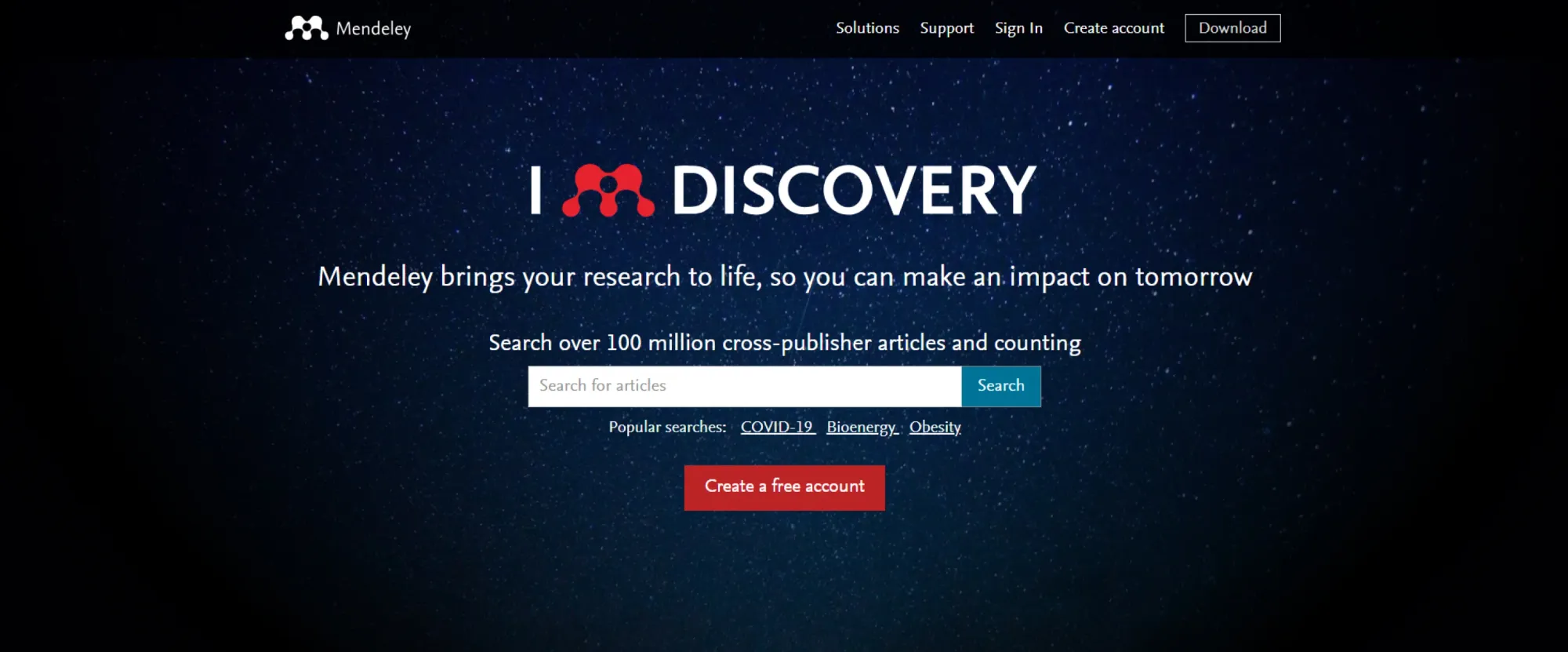
Mendeley is a reference manager and academic social network that helps researchers organize their research, collaborate online, and discover the latest developments.
Pros:
- Free to use with premium options.
- Built-in PDF reader.
- Collaboration tools.
- Syncs across devices.
Cons:
- Limited storage in the free version.
- Can be slow with large libraries.
4. EndNote
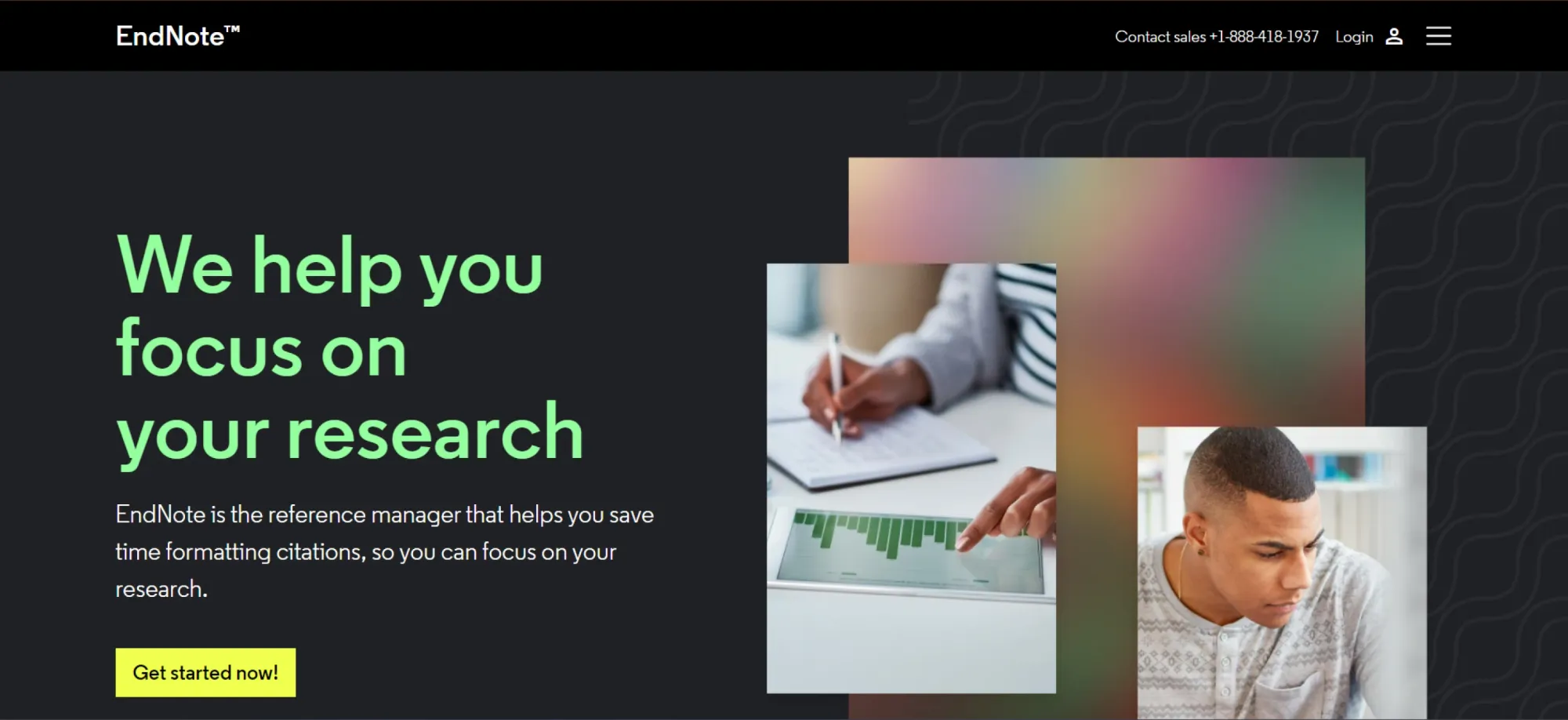
EndNote is a comprehensive reference management tool used by researchers, librarians, and students to manage bibliographies and references when writing essays and articles.
Pros:
- Extensive range of citation styles.
- Integrates with MS Word.
- Advanced reference management features.
Cons:
- Expensive compared to other tools.
- Complex interface.
5. RefWorks
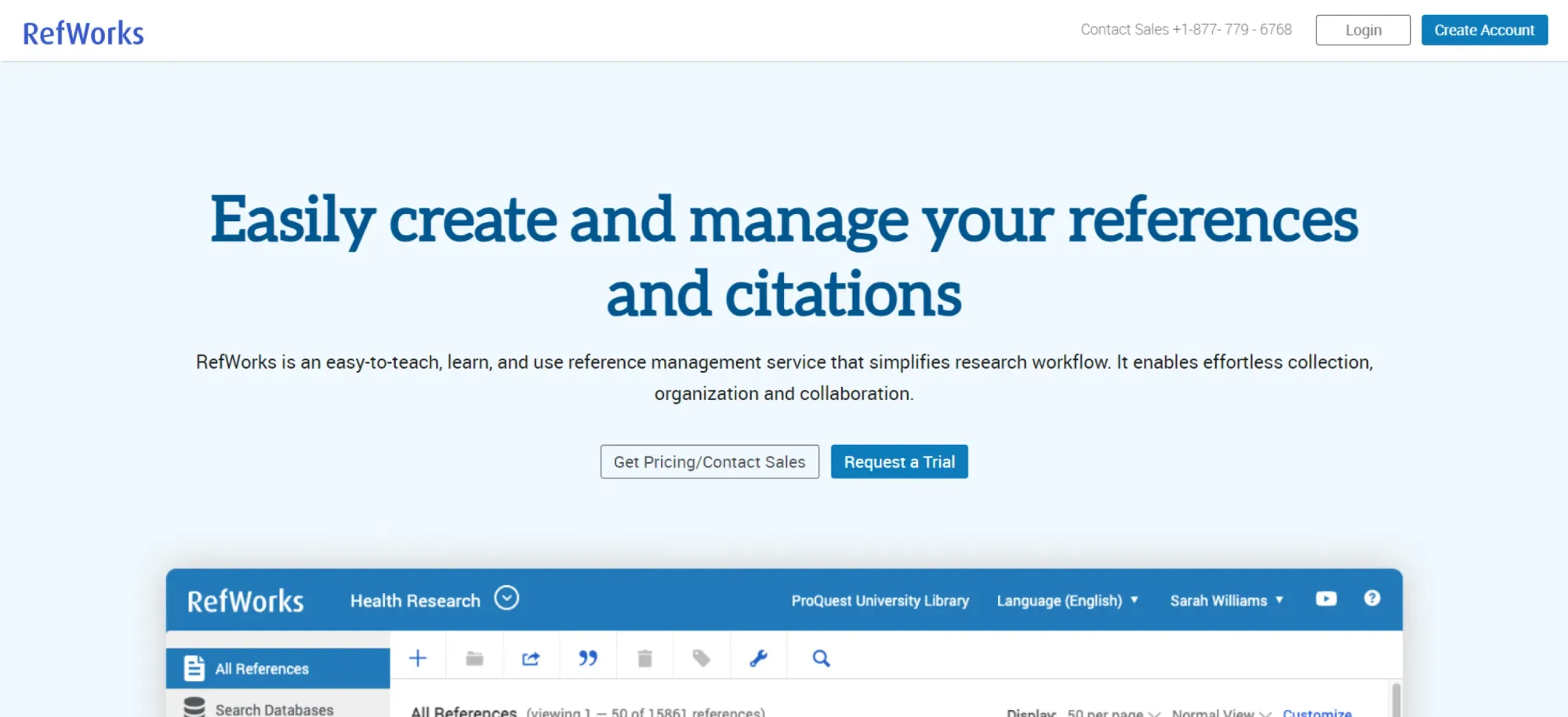
RefWorks is a cloud-based reference management software that is easy to use and perfect for researchers and students who need to manage citations and generate bibliographies.
Pros:
- Cloud-based, accessible from anywhere.
- Supports multiple citation styles.
- Easy collaboration.
Cons:
- Subscription required.
- Interface can be overwhelming.
6. Jenni.AI
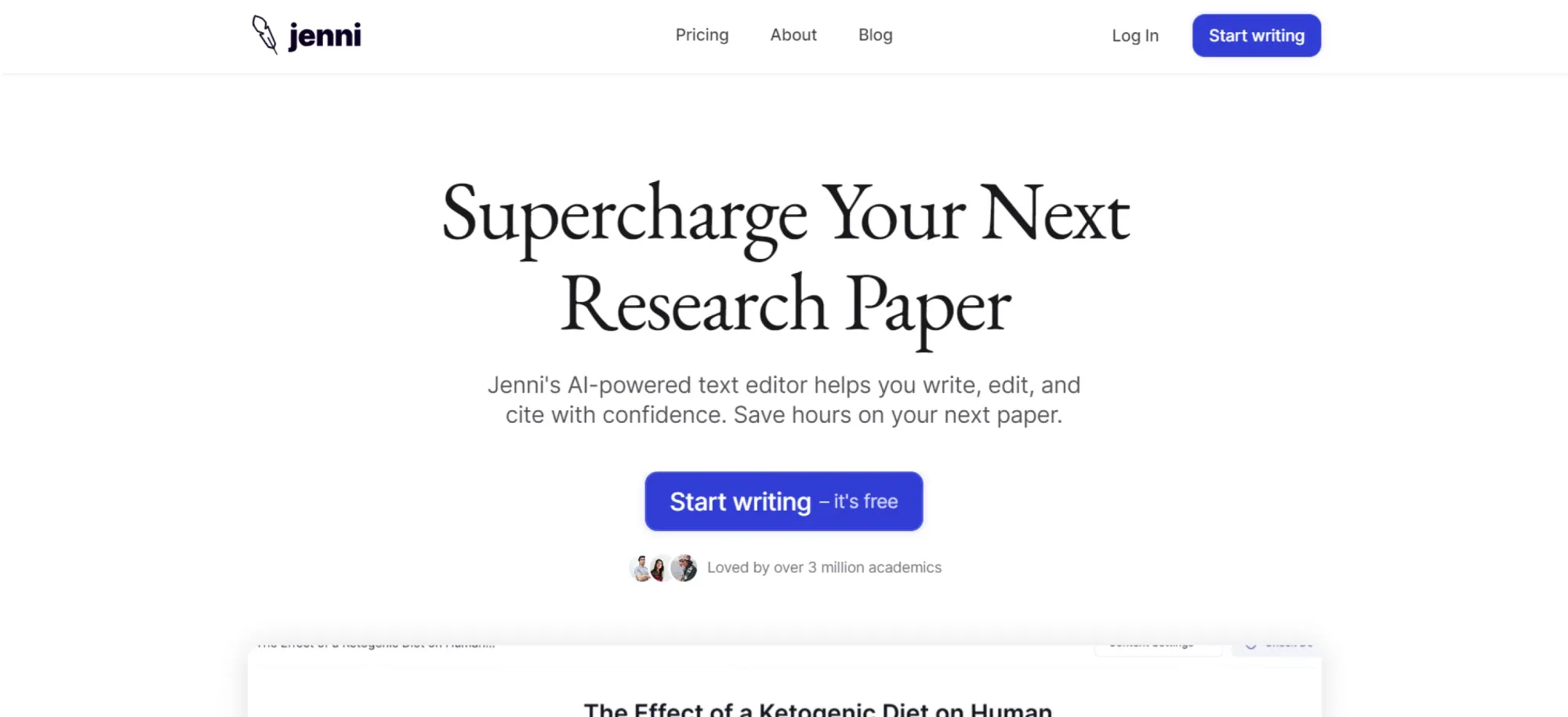
Jenni.AI assists in creating comprehensive literature reviews by offering AI-generated prompts and ideas tailored to the user's research topic. It helps overcome writer's block and expands the review's depth.
Pros:
- Tailored AI-generated prompts.
- Helps with writer's block.
- Expands review depth.
Cons:
- Requires a subscription.
- Limited free version features.
7. Unriddle.AI
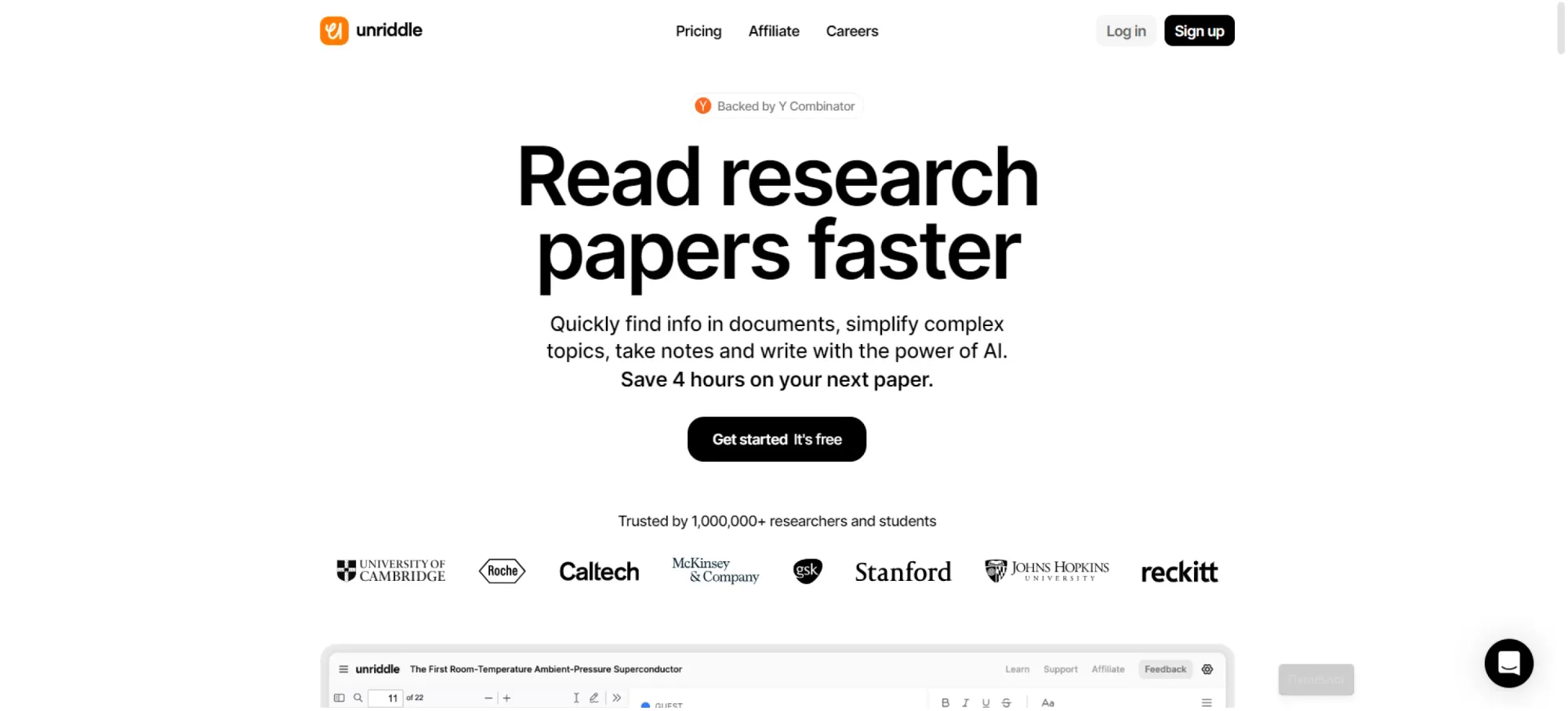
Unriddle.AI is an AI-powered tool that helps create literature reviews by simplifying complex topics, generating AI autocomplete suggestions, and organizing research findings. It provides a collaborative workspace for sharing and editing documents in real-time.
Pros:
- Simplifies complex topics.
- Provides real-time collaboration.
- Generates structured findings.
Cons:
- Subscription required for full features.
- May need occasional manual adjustments.
8. HyperWriteAI
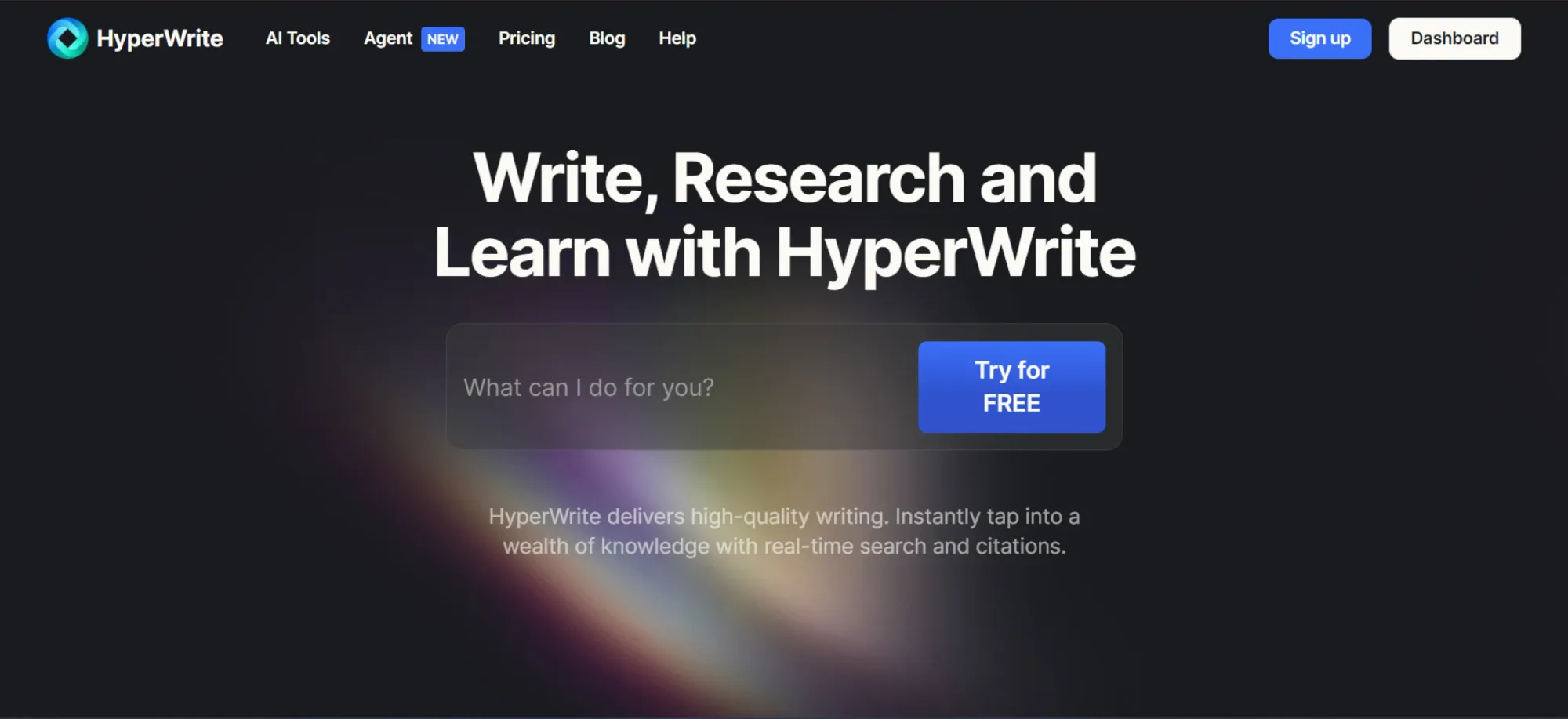
HyperWriteAI automates literature review creation by analyzing scholarly articles, books, and other resources. It identifies key themes, methodologies, and research gaps, generating structured reviews with proper citations.
Pros:
- Automates review creation.
- Identifies key themes and gaps.
- Provides proper citations.
Cons:
- Subscription required.
- Limited customization options.
9. AskYourPDF

AskYourPDF is an AI-powered tool that generates structured summaries for literature reviews. It helps streamline research, saving time and effort by creating cohesive and comprehensive reviews.
Pros:
- Saves time and effort.
- Creates structured summaries.
- Enhances academic work.
Cons:
- Subscription required for advanced features.
- May need manual adjustments.
10. WriteCream

WriteCream's Instant Literature Generator helps users refine ideas and tailor the generated literature to their preferences. The AI ensures coherent, well-organized output with high grammar and vocabulary standards.
Pros:
- Refines ideas.
- High grammar and vocabulary standards.
- Customizable output.
Cons:
- Subscription required.
- Limited free features.
11. Scholarcy
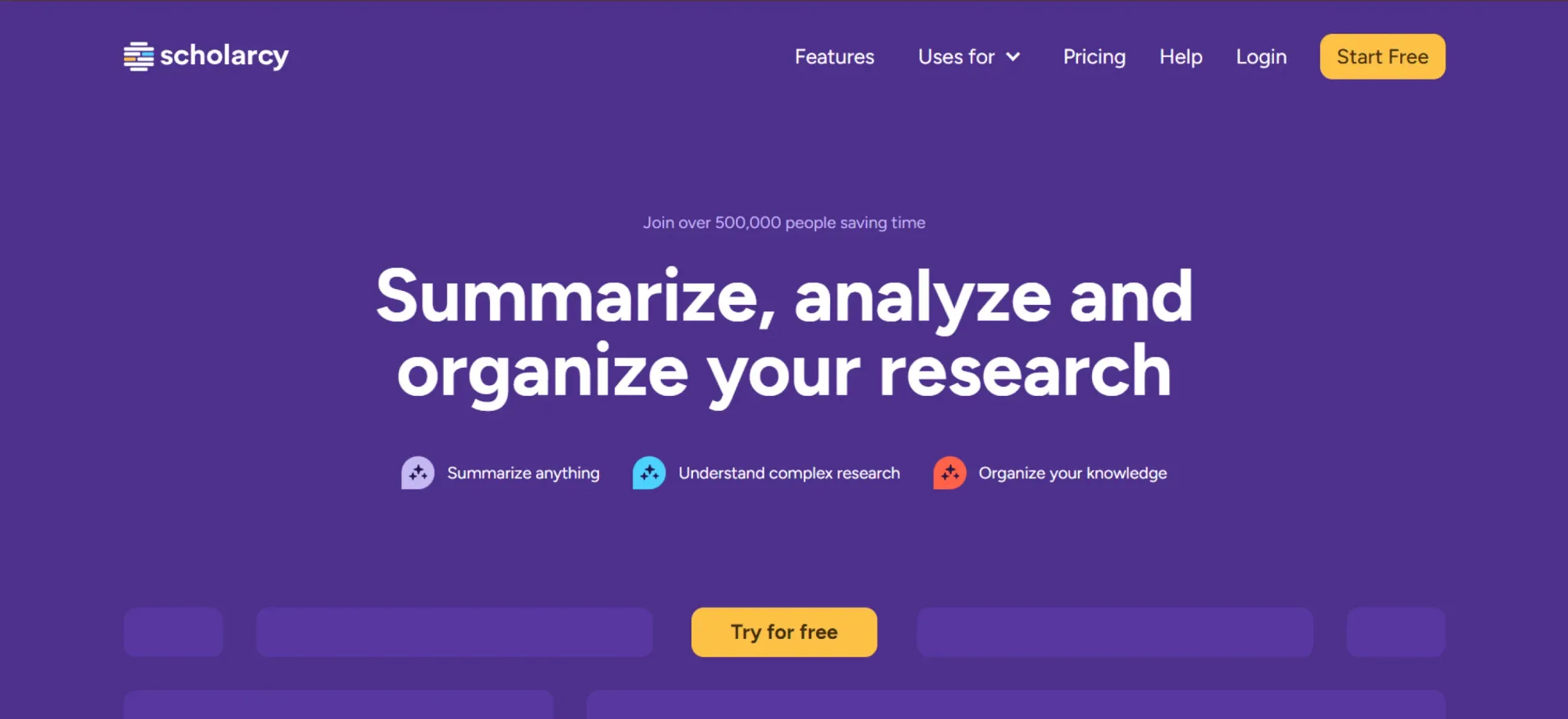
Scholarcy breaks down research papers into summary flashcards, providing a concise overview of key elements. It generates an Excel synthesis matrix displaying key methods and findings side by side.
Pros:
- Concise summaries.
- Easy comparison of research.
- Excel synthesis matrix.
Cons:
- Subscription required for full features.
- Limited customization.
12. Academic Help
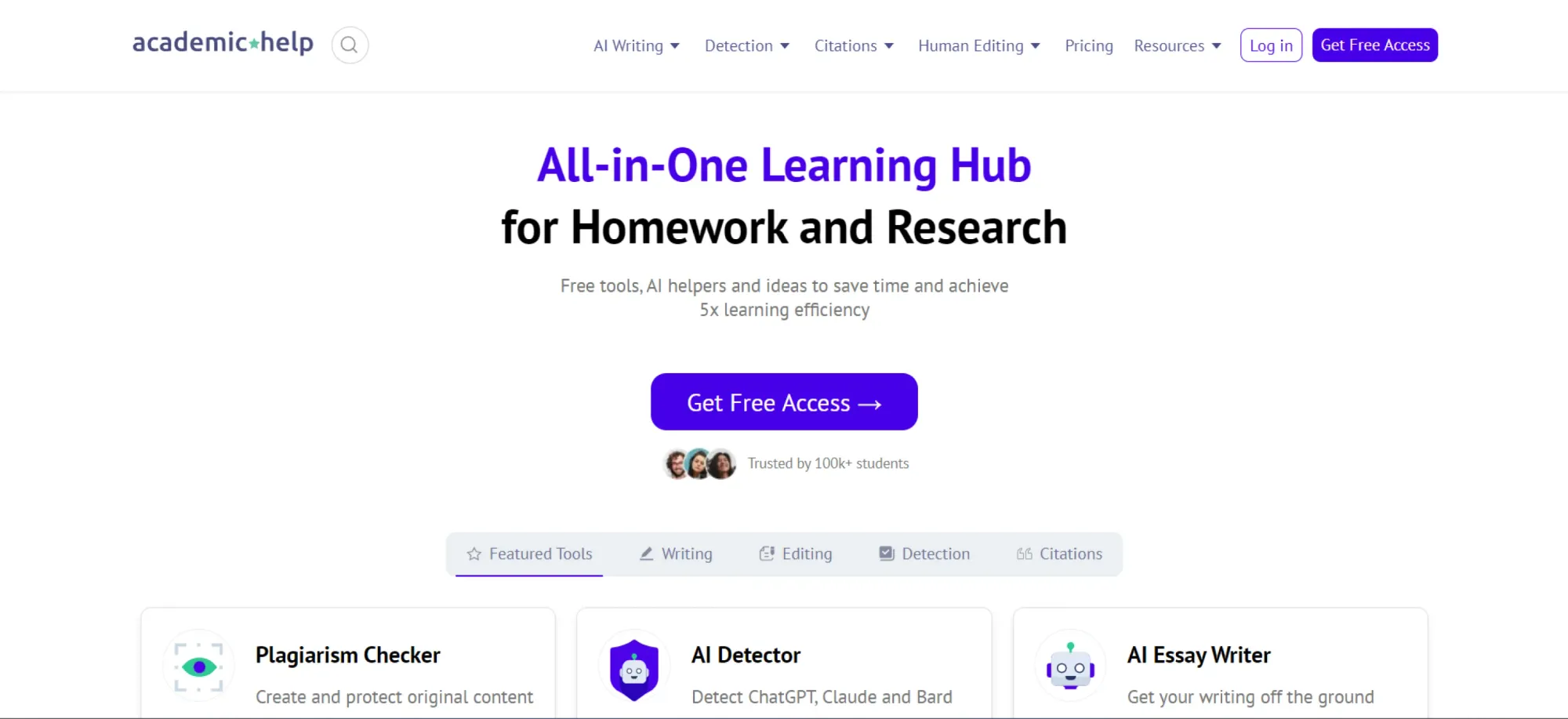
Academic Help's literature review tool supports research integrity by aligning research with essential academic principles. It promotes academic honesty and is a valuable resource for academic writing.
Pros:
- Promotes academic honesty.
- Supports research integrity.
- Valuable for academic writing.
Cons:
- Limited advanced features.
- Subscription may be required for full access.
13. Scholarcy
Scholarcy breaks down research papers into summary flashcards, providing a concise overview of key elements. It generates an Excel synthesis matrix displaying key methods and findings side by side.
Pros:
- Concise summaries.
- Easy comparison of research.
- Excel synthesis matrix.
Cons:
- Subscription required for full features.
- Limited customization.
14. Merlin AI
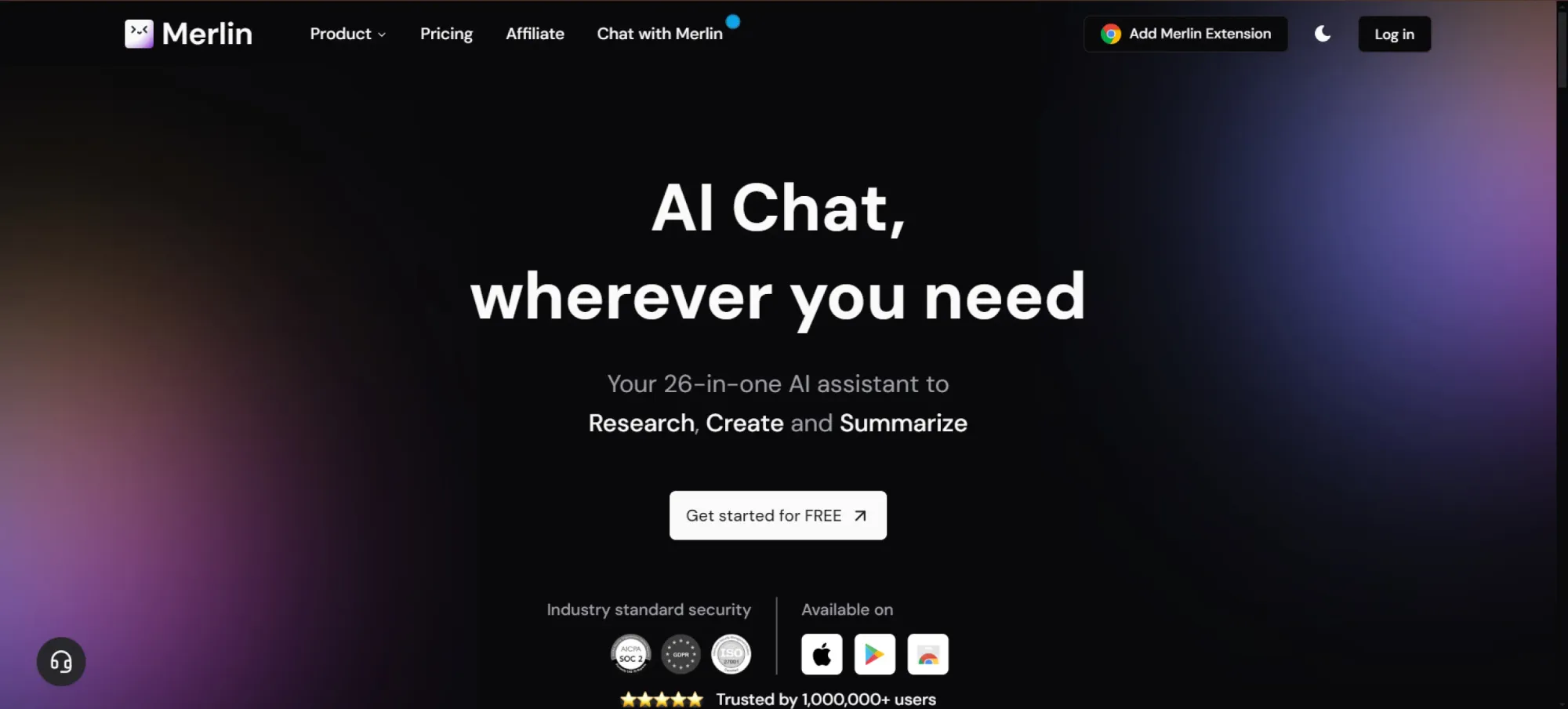
Merlin AI assists researchers and students in conducting top-notch literature reviews by leveraging advanced AI technology to provide valuable insights and information.
Pros:
- Provides valuable insights.
- Enhances academic pursuits.
- Easy to use.
Cons:
- Requires a subscription.
- Limited free version features.
15. SciSpace
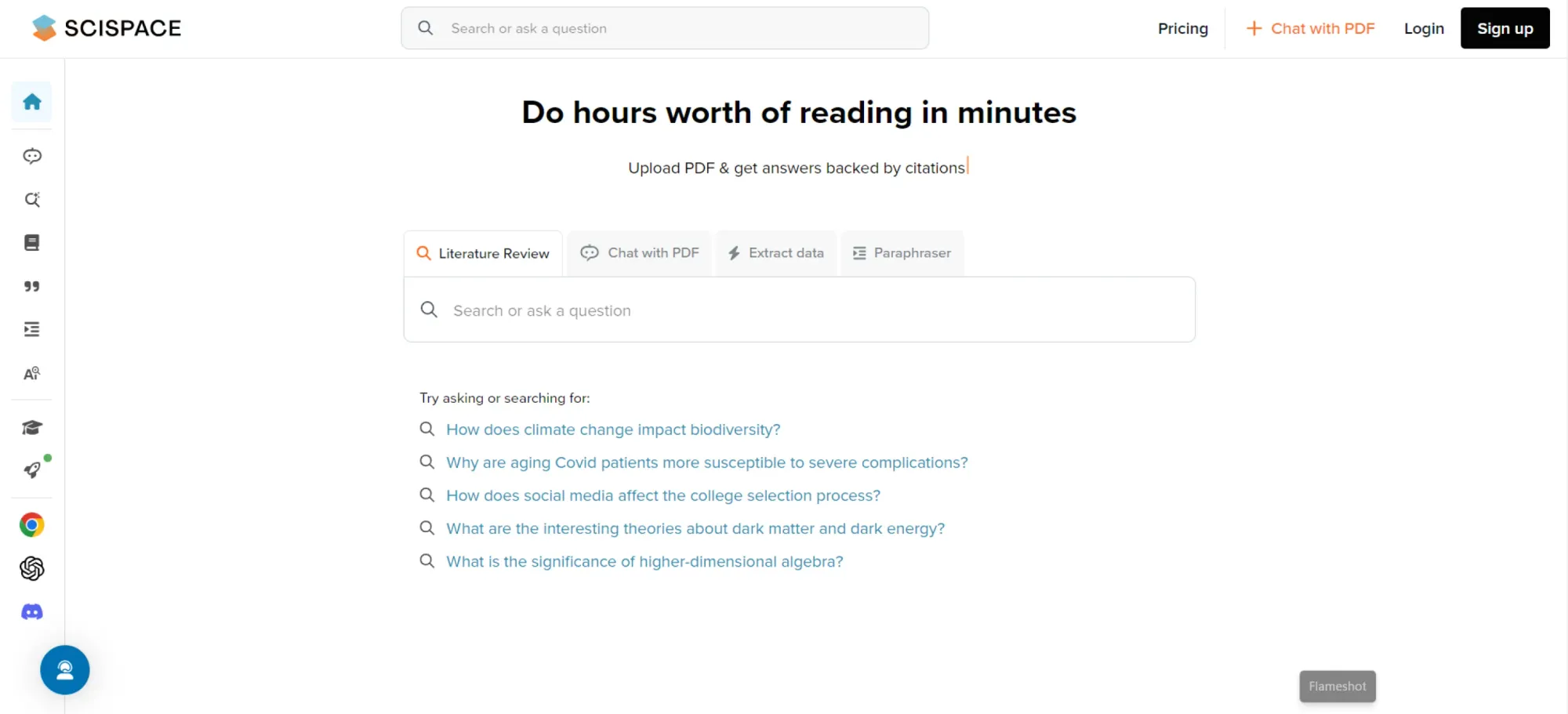
SciSpace is an AI-powered platform with over 270 million research papers. Its AI assistant, Copilot, offers explanations, summaries, and answers, aiding in literature reviews and academic research.
Pros:
- Extensive research repository.
- AI assistant for summaries and explanations.
- Enhances academic research.
Cons:
- Subscription required for full access.
- Can be overwhelming for new users.
How to Choose the Right Literature Review Generators
When picking a literature review generator, consider the following:
1. Ease of Use
When choosing a literature review generator, it's important to find a tool with a user-friendly interface. Ease of use matters because it helps save time and reduces the learning curve. A tool that's easy to navigate allows you to get your work done faster, as you won't waste time figuring out how things work. A simple, intuitive interface means you can start using the tool right away without spending hours learning how to use it.
2. Features
When selecting a literature review generator, it's crucial to ensure the tool offers essential features that will support your research needs. One key feature to look for is citation management, which helps you organize and format your references correctly. This saves you time and ensures that your citations are accurate and consistent.
3. Compatibility
When choosing a literature review generator, it is essential to check if the tool integrates well with other software you use, such as word processors and reference managers. Compatibility with these tools ensures a smooth workflow, making your research process more efficient and less cumbersome.
4. Cost
When selecting a literature review generator, it is important to consider the cost. Comparing free and paid options helps you determine which tool offers the best value for your needs. Some tools provide a free version with limited features, which might be sufficient if you only require basic functionalities such as citation management and simple summaries.
5. Accuracy
When selecting a literature review generator, it is crucial to choose a tool that provides accurate citations and reliable summaries. Accurate citations ensure that your references are correctly formatted and comply with the required citation style, which is essential for maintaining the integrity of your academic work. Reliable summaries help you quickly grasp the main points and key findings of the research, saving you time and effort in understanding the literature.
6. Support
When selecting a literature review generator, it is essential to opt for tools that offer good customer support and comprehensive tutorials. Good customer support ensures that you can get help quickly if you encounter any technical issues or have questions about using the tool. Having access to a responsive support team can save you time and reduce frustration, allowing you to focus more on your research.
7. Collaboration
If you work with a team, select a tool that supports real-time collaboration. This allows multiple users to edit and share documents easily.
By considering these factors, you can select the literature review generator that best fits your needs and enhances your research efficiency.
Conclusion
Choosing the right literature review generator can make a big difference in your research process. Look for a tool that is easy to use, offers the features you need, and works well with other software you use. Consider the cost and make sure the tool provides accurate citations and summaries. Good customer support and helpful tutorials are also important. By taking these factors into account, you can find a literature review generator that helps you work more efficiently and effectively.
Frequently Asked Questions
1. What is the best literature review generator?
The best literature review generator depends on your specific needs and preferences. Some popular options include v0 Report, Zotero, Mendeley, and EndNote. These tools offer various features like citation management, AI-generated summaries, and real-time collaboration. It's important to compare the features, ease of use, and cost to find the one that best suits your research needs.
2. What is a literature review generator?
A literature review generator is a tool designed to help researchers create literature reviews. It organizes and manages references, summarizes research articles, and can sometimes provide AI-generated insights. These tools streamline the process of compiling and synthesizing information from various sources, making it easier to write comprehensive and coherent literature reviews.
3. Is there an AI that can write literature reviews?
Yes, there are AI tools that can assist in writing literature reviews. Examples include Unriddle.AI, Jenni.AI, and HyperWriteAI. These AI-powered tools can analyze research papers, generate summaries, and help structure your literature review. They save time and enhance the quality of your work by providing relevant insights and organizing information efficiently.
4. How to generate a literature review?
First, choose a topic by selecting a specific area of research to focus on. Next, gather sources by collecting relevant research articles, books, and other materials. Then, use a literature review generator by inputting your sources into the tool. The tool will help you organize and summarize the information. Finally, write the review by using the generated summaries and organized data, ensuring that you include proper citations and maintain coherence throughout the literature review.
5. How to elevate your research using an AI literature review generator?
To elevate your research using an AI literature review generator, follow these steps:
Save time by using the tool to quickly generate summaries and organize references, allowing you to focus more on analysis and interpretation. Improve accuracy by relying on the tool for precise citations and consistent formatting. Enhance quality by leveraging AI-generated insights to deepen your understanding and create a more comprehensive review. Collaborate efficiently by using tools with real-time collaboration features to work seamlessly with co-researchers. Stay organized by keeping your research well-managed with the tool's reference management features, ensuring all sources are easily accessible and properly cited.



